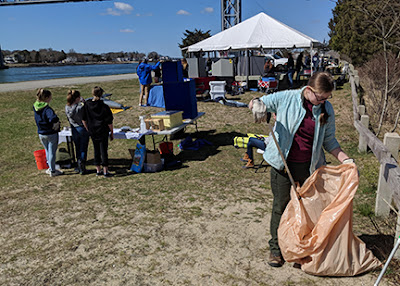Ocean Exploration Cruise - June 3, 2018 from 7 am to 1 pm is a GO!
Ocean Exploration Cruise Sunday, June 3, 2018 7 am to 1 pm Onboard the Privateer IV with 7 Seas Whale Watch 7 Rogers Street, Gloucester ====================================================================== Date of this Posting: Saturday, June 2, 2018 Status of Trip on June 3: A GO ! Hi: I was just offshore today and winds were calmer than predicted with almost no seas offshore. Our trip tomorrow at 7 am continues to be a go. I assume winds will increase over the course of the night and early morning, so we expect to sneak this trip in before it gets nasty offshore. The marine forecast for Monday through Thursday is not good so this may be the last trip offshore for a few days. Please be down at the 7 Seas Whale Watch dock at 6:30 am and we will board as soon as we can. Bring food, drinks, and dress appropriately. Keep your belongings to a minimum so everyone will have space. NECWA will bring some merchandise onboard to help raise funds for our projec...



